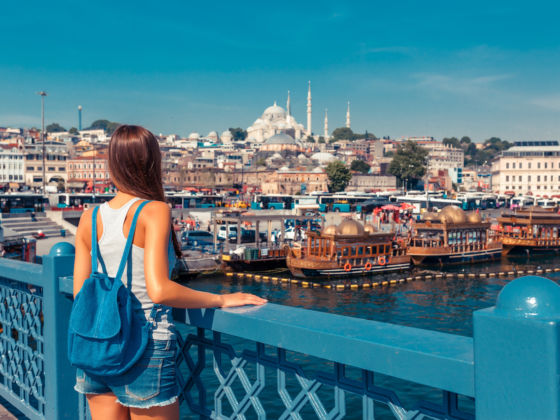I’m not going to Turkey for work or any big social purpose. I’m going to Turkey for more self-gratifying reasons: to rendezvous with an Albanian woman I dated briefly in New York City who is now moving to Kyrgyzstan to do development work in gender-based violence; more specifically, bride kidnapping.
“I guess the possibility of being fined and jailed in Tanzania isn’t enough for me. I have to go to a war zone to meet with another lesbian,” I joked with her over Skype.
